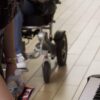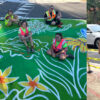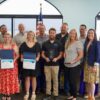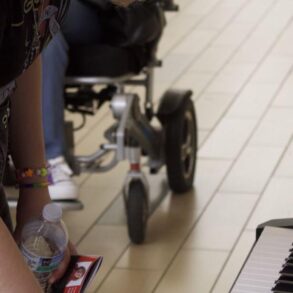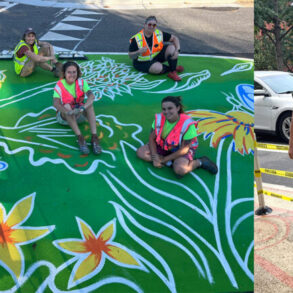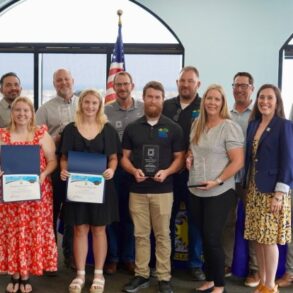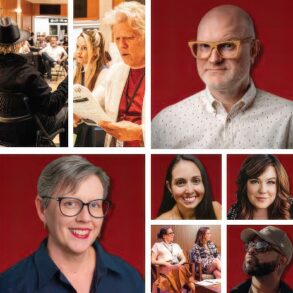Henna artist Halitha Khan was “very nervous” when setting up her first market stall to offer henna tattoos to the Tasmanian public.
“Because I didn’t know if I would get any customers,” she said.
Ms Khan, originally from India, had moved to Tasmania just a few months before, and noticed that henna was “very rare” in the state.
Henna is a plant-based dye that leaves a tattoo on skin that lasts for about two weeks, and it is a cultural tradition in India.
Not knowing if Tasmanians would accept her art, Ms Khan said she was shaking before the Devonport Twilight Market that day.
But she quickly realised her fears had been misplaced.
“I started [doing henna] at 4pm, and I didn’t look up until it was 8:30pm,” she said.
“The response on that day was so huge.
“And I loved it.”
New business based on a ‘passion’
Ms Khan, who has practised doing henna tattoos since she was 10, had only ever done it “out of love and passion”.
But after she noticed a neighbour’s “very excited” reaction to some henna designs she had done on her daughter’s hands, she had the idea of turning her skill into a business.
“That’s when I thought Tasmanians might like to have henna done on their hands,” she said.
In India, henna is very commonly used on the hands, arms and feet — the dye being considered culturally, spiritually and medicinally important, Ms Khan explained.
“It’s very important in the Muslim community — it is considered sacred,” she said.
“We use henna as a medicinal treatment for cuts and wounds, psoriasis and dandruff — all Indians believe it has healing properties.
“We also use it to celebrate anything good … [and] there’s no wedding which goes on without having the bride glammed up completely with henna.”
Henna tattoos, which can be based on traditional designs or created by any henna artist, can take anywhere from 10 minutes to a whole day to complete, depending on their complexity.
Ms Khan offered simple hand tattoos on her first market day, as she has at a huge range of events across northern Tasmania since then.
She has had stalls at town shows, school fares, flower festivals, cruise ship arrivals, diversity celebrations, book launches, motor shows, and even Steam Fest, Goat Fest and now Agfest.
Private bookings allow Ms Khan to work on much more intricate designs, and she is pleased to have recently been booked for her first wedding.
“It has been a very busy year,” she said.
Discovering Tasmania and its people
Through driving, often with her husband Habeeb, to the events where she has worked, Ms Khan said she has learned a lot about her new island home.
“We discover a lot of beautiful places this way,” she said.
And, in sitting down and having one-on-one conversations with hundreds of Tasmanians while tattooing their hands over the past year, Ms Khan has also learned a lot about them.
“They talk about their lives, and most of them like asking about me … and about how I started this business,” she said.
Ms Khan said she enjoys these chats, and loves using them to help her understand more about her new home.
“If a customer is really friendly … I just ask them random questions about Tassie, things I want to know,” she said.
“Sometimes I [also] ask them the meaning of some of the words they say.”
People with a wide range of backgrounds and cultures sit with Ms Khan at her table, she said.
“So I’m getting to know a lot of different types of people … and their accents.”
“[And] now it’s easier for me to connect with people here.”
Work and life goals
Ms Khan said she very often got asked by her customers how they could learn to do henna tattoos.
“They will ask for classes, and they’ll say … ‘This would be so interesting to learn.'”
Teaching henna is something Ms Khan loves to do, and she is currently focused on developing a workshop for people with a disability.
“I think I could give them a career doing henna for others,” she said.
“People with a disability who have steady hands and who want to have a henna business … I can help them to do it.”
Ms Khan said she was grateful for what her new business had helped her discover about Tasmanians and their home so far.
“Going around to different places, meeting new people and talking to them, it’s learning every day,” she said.
“I really do learn a lot about Tasmania.”
LoadingLoading…
This post was originally published on this site be sure to check out more of their content

